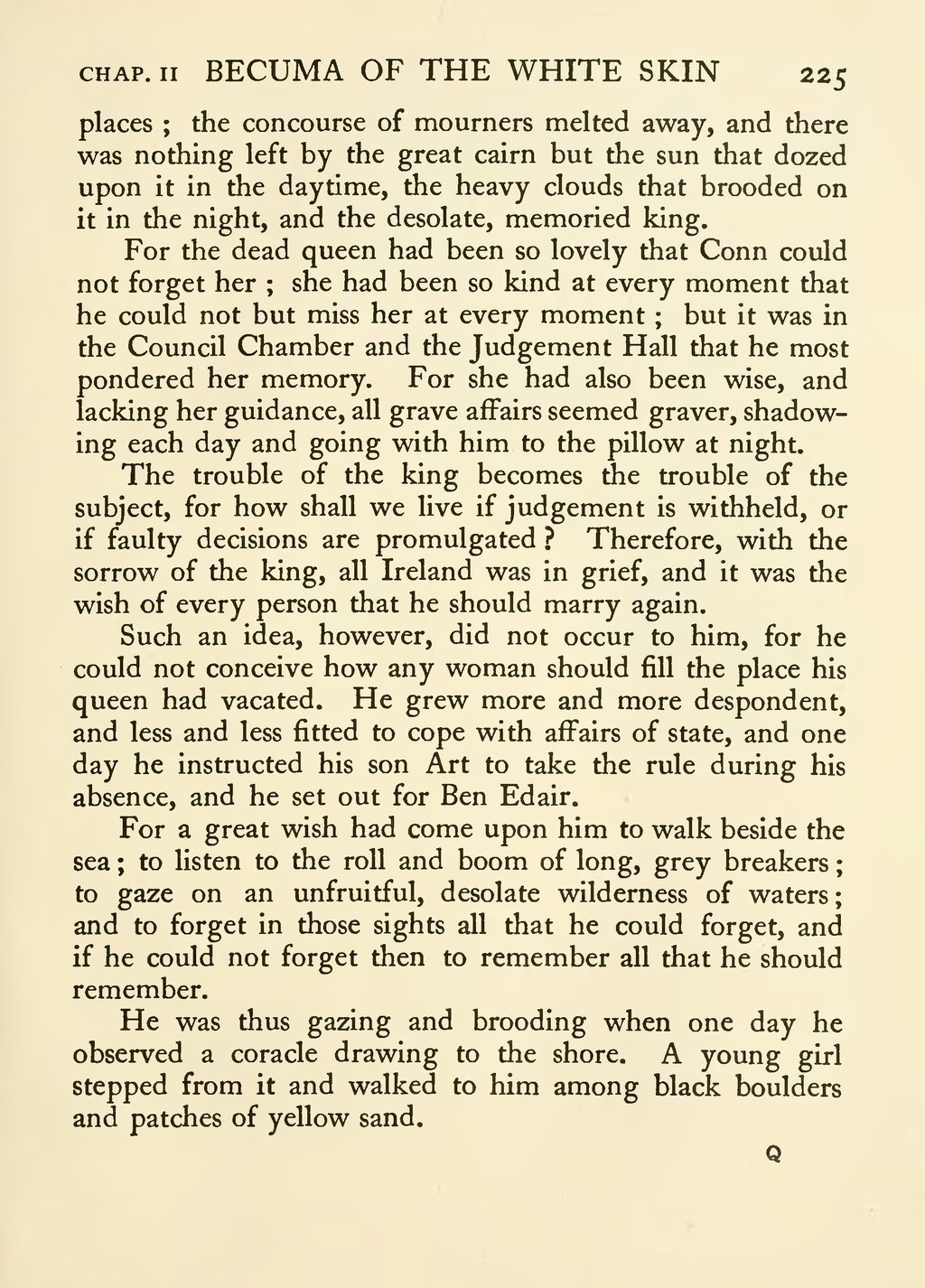places; the concourse of mourners melted away, and there was nothing left by the great cairn but the sun that dozed upon it in the daytime, the heavy clouds that brooded on it in the night, and the desolate, memoried king.
For the dead queen had been so lovely that Conn could not forget her; she had been so kind at every moment that he could not but miss her at every moment; but it was in the Council Chamber and the Judgement Hall that he most pondered her memory. For she had also been wise, and lacking her guidance, all grave affairs seemed graver, shadowing each day and going with him to the pillow at night.
The trouble of the king becomes the trouble of the subject, for how shall we live if judgement is withheld, or if faulty decisions are promulgated? Therefore, with the sorrow of the king, all Ireland was in grief, and it was the wish of every person that he should marry again.
Such an idea, however, did not occur to him, for he could not conceive how any woman should fill the place his queen had vacated. He grew more and more despondent, and less and less fitted to cope with affairs of state, and one day he instructed his son Art to take the rule during his absence, and he set out for Ben Edair.
For a great wish had come upon him to walk beside the sea; to listen to the roll and boom of long, grey breakers; to gaze on an unfruitful, desolate wilderness of waters; and to forget in those sights all that he could forget, and if he could not forget then to remember all that he should remember.
He was thus gazing and brooding when one day he observed a coracle drawing to the shore. A young girl stepped from it and walked to him among black boulders and patches of yellow sand.
